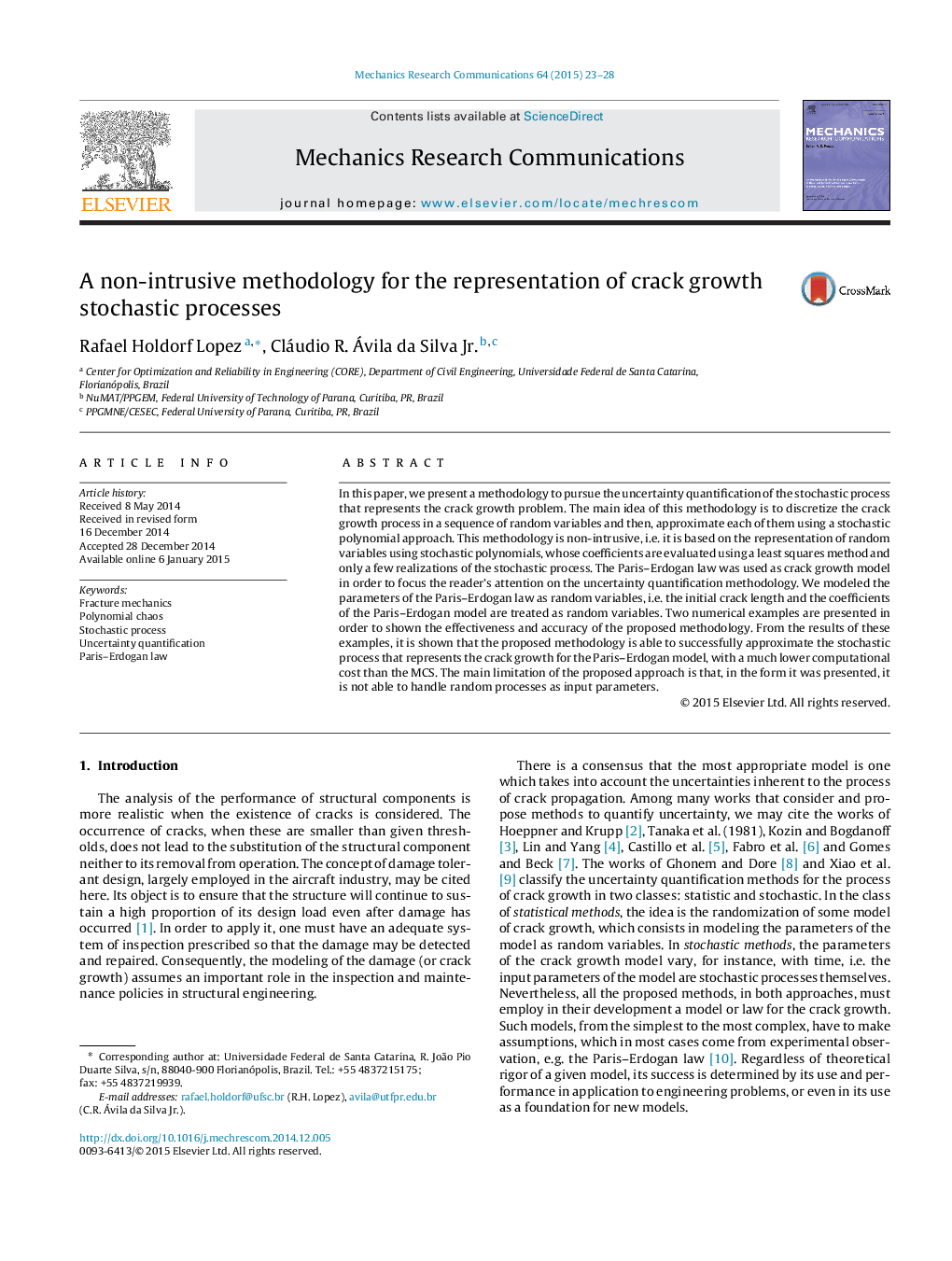| Article ID | Journal | Published Year | Pages | File Type |
|---|---|---|---|---|
| 799055 | Mechanics Research Communications | 2015 | 6 Pages |
•Proposed methodology is much more efficient than the MCS.•It requires only a few calls to the Runge–Kutta code.•Its accuracy increases with the degree of the expansion.•It is non-intrusive and easily extendable to more complex cases.•It does not require probabilistic transformations for non-Gaussian random variables.
In this paper, we present a methodology to pursue the uncertainty quantification of the stochastic process that represents the crack growth problem. The main idea of this methodology is to discretize the crack growth process in a sequence of random variables and then, approximate each of them using a stochastic polynomial approach. This methodology is non-intrusive, i.e. it is based on the representation of random variables using stochastic polynomials, whose coefficients are evaluated using a least squares method and only a few realizations of the stochastic process. The Paris–Erdogan law was used as crack growth model in order to focus the reader's attention on the uncertainty quantification methodology. We modeled the parameters of the Paris–Erdogan law as random variables, i.e. the initial crack length and the coefficients of the Paris–Erdogan model are treated as random variables. Two numerical examples are presented in order to shown the effectiveness and accuracy of the proposed methodology. From the results of these examples, it is shown that the proposed methodology is able to successfully approximate the stochastic process that represents the crack growth for the Paris–Erdogan model, with a much lower computational cost than the MCS. The main limitation of the proposed approach is that, in the form it was presented, it is not able to handle random processes as input parameters.
